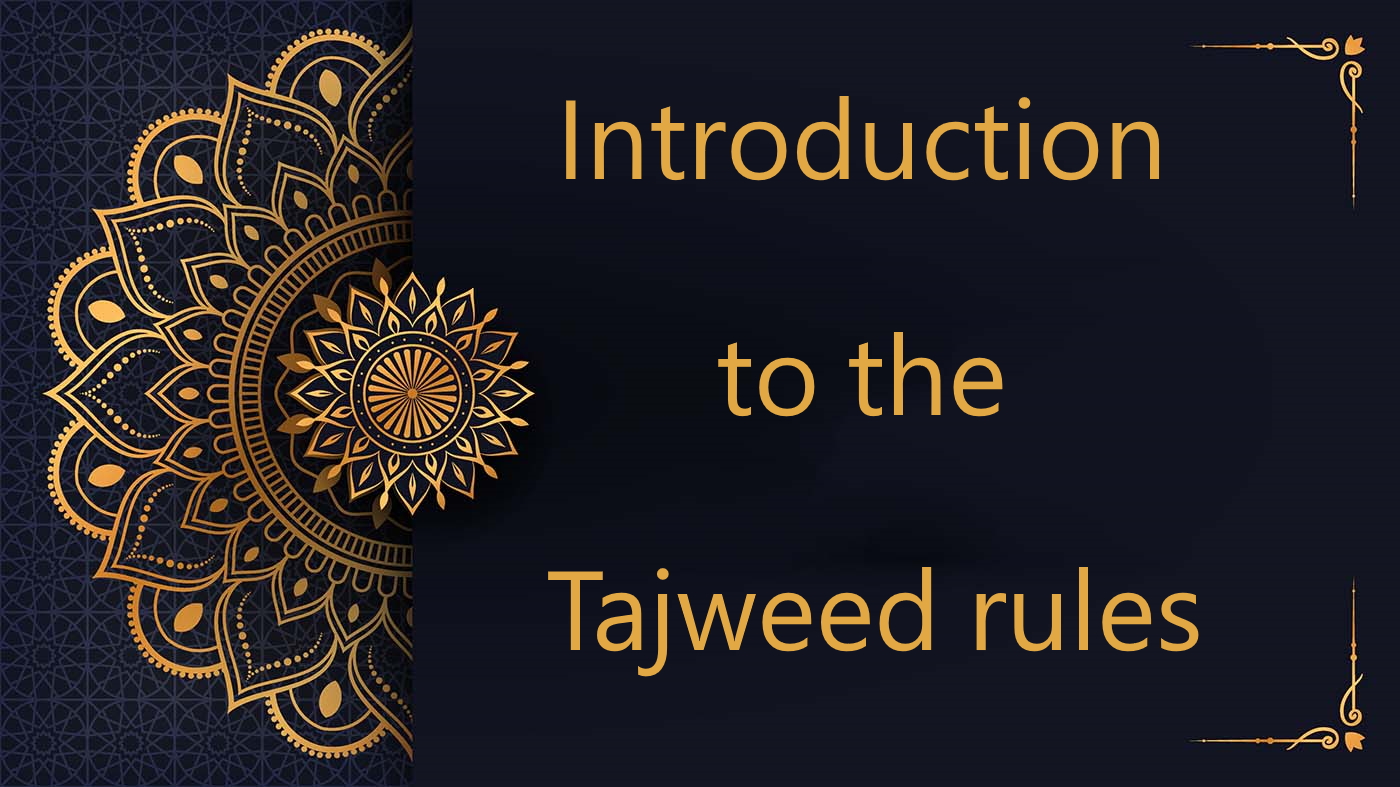
An Introductory Guide to Tajweed Rules
The Holy Qu’ran, Allah’s final revelation, serves as a beacon of guidance and knowledge for humanity.
From the moment of its divine revelation, and by Allah’s grace, this boundless source has remained untouched, both in its profound meanings and even its subtlest letters and vocalization signs.
Allah has ensured its preservation through the ages and generations:
إِنَّا نَحْنُ نَزَّلْنَا الذِّكْرَ وَإِنَّا لَهُ لَحَافِظُونَ
Indeed, it is We who sent down the Qur’an, and indeed, We will be its guardian. (15:9)
The enduring preservation of the Holy Qu’ran has manifested in two distinct ways:
- Written preservation
- Oral preservation
The latter, which is our primary focus, pertains to the meticulous manner in which the Holy Qu’ran has been recited and transmitted.
In this light, the Holy Quran reached us through trustworthy transmission chains, originating from Allah’s Prophet (peace be upon him) and tracing back to Allah Himself.
These chains ensure a consistent Qur’anic reading from the earliest transmitters to the most recent.
In time, scholars established a comprehensive set of rules to facilitate accurate Qur’anic recitation, best learned under the tutelage of a proficient teacher.
Historical Insight:
Following the demise of the Prophet (peace be upon him), Caliph Abu Bakr undertook the task of consolidating the scattered Qur’anic revelations.
The Quranic text, initially inscribed on various leaves (sahîfa), underwent verification by the Prophet’s companions at Abu Bakr’s directive. This initial compilation eventually became known as the ‘mushaf’, signifying the assembled leaves bearing the Holy Qu’ran’s verses.
Hence, the term ‘mushaf’ refers to the bound compilation of the Qu’ranic verses.
It’s more accurate to say, “I read from the mushaf” or “I recite the Qu’ran,” rather than “I read the mushaf” or “I read my little Qu’ran”.
Understanding the Science of Tajweed: An Overview and Explanation
Allah the Almighty says in the Quran:
أَوْ زِدْ عَلَيْهِ وَرَتِّلِ الْقُرْآنَ تَرْتِيلًا
Or add to it, and recite the Qur’an with measured recitation. (73:4)
This verse underscores the significance of contemplating Allah’s words. Delving into Tafseer (interpretations of Qur’anic verses) can provide insights. The Holy Qur’an was revealed not merely for recitation, but for us to grasp its profound meanings.
أَفَلَا يَتَدَبَّرُونَ الْقُرْآنَ ۚ وَلَوْ كَانَ مِنْ عِندِ غَيْرِ اللَّـهِ لَوَجَدُوا فِيهِ اخْتِلَافًا كَثِيرًا
Then do they not reflect upon the Qur’an? If it had been from [any] other than Allah, they would have found within it much contradiction. (4:82)
Definition of Tajweed rules
The term Tajweed originates from the Arabic root Jawwada – جَوَّدَة, signifying ‘enhancement’ or ‘excellence.’
For Quranic scholars, Tajweed carries dual implications:
- Precise articulation and correct pronunciation during recitation.
- A moderated pace in the recitation rhythm
Objectives of the Science of Tajweed Rules
The science of Tajweed aims to refine one’s Quranic recitation by ensuring each letter is pronounced from its precise point of articulation (makhraj al huruf) and embodies its inherent characteristics (sifat al huruf).
Tajweed emphasizes reciting the Quran with grace and gentleness, in alignment with the Prophet’s tradition (peace be upon Him).
Mastering Tajweed is about safeguarding the tongue from errors during recitation, striving to gain Allah’s approval and blessings for the reader.
The Evolution and History of Tajweed Principles
The inception of Tajweed principles can be traced back to Prophet Muhammad (peace be upon Him), who was taught by Angel Jibril (peace be upon Him) under the direct guidance of Allah. This imparted a distinctive recitation style to the Holy Quran, setting it apart from all other forms of textual reading. The foundational tenets of Tajweed were later chronicled by linguistics pioneers such as Al-Khalil ibn Ahmed al Farahidi and his prodigious student, Sibawayh.
The four core components of Tajweed principles are:
- Mastering the articulation points of the letters (makhraj al huruf).
- Understanding the inherent qualities of the letters (sifat al huruf).
- Familiarizing oneself with the specific Tajweed rules (ahkam Tajweed).
- Pursuing education under the guidance of a knowledgeable Tajweed instructor.
Conclusion
This lesson on Tajweed rules has concluded. Insha’Allah, our next topic will delve into the science of reciting the Holy Quran.
At the Al-dirassa Institute, we provide an accessible path to mastering Tajweed under the guidance of skilled instructors. Should you wish to pursue this further, we warmly invite you to reach out to us.
Chosen and Trusted by Thousands of Satisfied Learners
Discover the experiences of our delighted clients who have thoroughly enjoyed utilizing this standout feature.
Alhamdulillah I‘m very pleased with the arabic and Qur’an lessons I receive from teacher Umm Tasneem and I‘m also content with the al-dirassa administration team who were very quick in answering any questions I had. In a month I progressed a lot and I cannot wait to continue my studies with al-dirassa. May Allah reward everyone at al-dirassa.
 Verified review - view original
Verified review - view original
My Qur’an teacher is fantastic, she teaches me in a loving and kind way where I look forward to the lessons and learn so much. My Arabic teacher is equally as nice and has a lot of patience with me, she has great expertise in the field and I’ve progressed really quickly with her. Thank you Al-dirassa!
 Verified review - view original
Verified review - view original
Book your free trial lesson
Don’t want to go through the translation anymore?
30 free minutes with your qualified Egyptian teacher.




